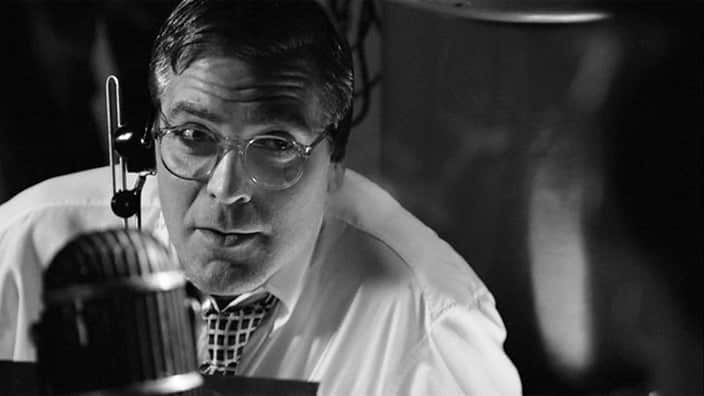White picket fences and mailmen who know your name, this is 1950s suburbia, complete with cookies and milk. It’s also complete with the dark and sinister undertones we’ve come to expect from every contemporary film set in that period. And this is a Coen Brothers production after all (Fargo, No Country for Old Men), with the socially conscious George Clooney (Good Night, and Good Luck, The Ides of March) in the director’s chair. So it isn’t long until big cracks appear in the pastel façade, blood gets spattered on horn-rimmed glasses and some basic social justice messages get smashed home in what feels like a dated and somewhat pointless farce.
The first indication that things are awry in Suburbicon (yes, that’s literally the name of the suburb) is the arrival of an African American family moving into one of the boxy houses, setting off escalating protests among the white inhabitants, who preposterously insist on their own ‘civil rights’. Then, there’s the disconcerting appearance of middle-aged twin sisters, both played by Julianne Moore (an actress in danger of being typecast in ‘50s mode this year with her villainous turn in Kingsman: The Golden Circle). The sisters, one blonde, one brunette, are shucking beans on the porch. One of them is in a wheelchair, the other one is her carer, and she seems sickly sweet as she tells a little boy (Noah Jupe) to run along and play baseball with the new kid next door.
Watch 'Good Night, and Good Luck' at SBS On Demand
PG, 2005
[link title="Good Night, and Good Luck review: An exceptional film for Clooney" url="node/2646"]

There’s a good reason why it’s hard to know which of these women is married to the man of the house, Gardner Lodge (a paunchy and bespectacled Matt Damon). When a home invasion turns violent, and the wheelchair-bound wife and mother gets killed, it’s all too easy for the other woman to pick up where her sister left off. It’s no wonder that a life insurance investigator (played by a zesty Oscar Isaac in the film’s funniest performance) comes sniffing around. Things get complicated when the thugs (Glenn Fleshler and Alex Hassell) start demanding more cash for their services. As the bodies pile up (with some laughs, it must be said), the kid realises he’s trapped in a murderous nightmare. The neighbours don’t notice the violence because too busy terrorising and destroying the property of the dark-skinned newcomers. There’s a message in that, in case you missed it.
Apparently Joel and Ethan Coen had this script in their drawer for decades, pulling it out recently to rewrite it with Clooney and his regular writing and producing partner Grant Heslov. Perhaps that time-lapse explains why you can’t help but wonder if this story might have seemed fresh and stylish if we’d seen it in the early 1990s. But now, in the year we’ve enjoyed the wit and nuance of race-related comic horror film Get Out, Suburbicon feels obvious and lazy and sometimes downright nasty.
Still, there are some pleasures to be had once you submit to Clooney’s straightforward directing style and stop looking for the quirks or confident changes in tone you’d see in one of the better Coen films. Technically accomplished, Suburbicon boasts top-notch period design (by James D. Bissell), crisp cinematography (by Robert Elswitt) and a bright, suspenseful orchestral score by Alexandre Desplat. It’s a perfectly competent period murder farce, and if that seems like faint praise, it probably is.